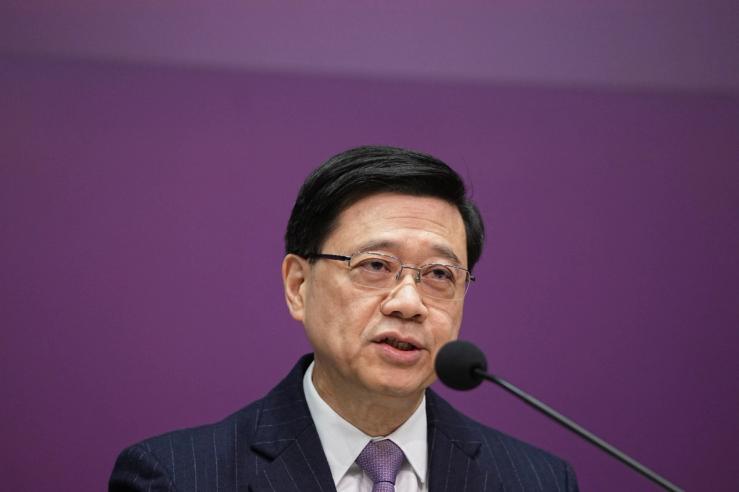The News
Hong Kong unveiled new details of a local security law that is expected to expand the government’s powers to quash dissent — three years after Beijing imposed a national security law that quelled the city’s pro-democracy protests in 2019.
New mandates outlined in the 110-page legislative proposal include penalizing updated acts of treason, insurrection, “stealing national secrets,” and “extra-territorial” acts that “endanger national security.”
The city’s efforts to pass the law under the terms of its mini-constitution have been long delayed owing to widespread opposition and fears of the government’s overreach. Officials shelved the legislation in 2003 after an attempt to pass it triggered large-scale protests.
“I want the government to be up and in full gear to explain what we are doing here, loud and clear, confidently and rightly, to tell the world we are just protecting ourselves from your attacks,” Hong Kong’s Chief Executive John Lee said at a recent press conference. “I think eventually when people see that this law will bring security and stability, they will love it.”
SIGNALS
Hong Kong’s ‘vague’ definition of ‘state secrets’ echoes Beijing’s propaganda
The new law criminalizes stealing or disclosing state secrets, but Hong Kong’s government has so “vaguely defined” the term that “anything could plausibly fit under the umbrella of ‘state secrets,’” Quartz’ Mary Hiu wrote. The government then becomes the “judge, jury, and executioner” in making the distinction between mere information and a state secret that could threaten national security, she argued. Hong Kong leader John Lee’s rationale for defending against such “nebulous yet urgent threats” echoes China’s propaganda of paranoia around protecting national security against “suspicious activity,” Hui wrote.
The political, legal, and geographical gap between Hong Kong and China is ‘getting smaller’
A Hong Kong judge’s recent ruling to liquidate Chinese property developer giant Evergrande follows a pattern of overseas creditors increasingly choosing the city’s courts over the mainland to challenge real estate companies, Bloomberg reported last year, once again making Hong Kong a “superconnecter” between the West and the mainland. But China is also backing expansive and expensive development projects in Hong Kong with “one goal in mind: integration with [the] mainland,” The Washington Post reported. Only 6% of residents approve of two mammoth projects underway that would integrate Hong Kong with the “Greater Bay Area,” a poll cited by the Post found, but “the reality is that the gap [between Hong Kong and China] is getting smaller and smaller,” one China analyst said.
Hong Kong’s crackdown on political opponents will ease bill’s passage
The government has opened the legislative proposal up for a four-week “public consultation” period, which will then be followed by a debate in parliament. But passing the law is expected to be an easy feat with many of the city’s political opponents, including influential pro-democracy activists, behind bars or in self-exile. Many in the legal community had voiced concerns about the bill when it was first proposed in 2003, but last week, the head of the Hong Kong Bar Association said the legislation should be “transparent and thorough” which, according to the Hong Kong Free Press, was “likely to refute claims that the government does not listen to the public.”



